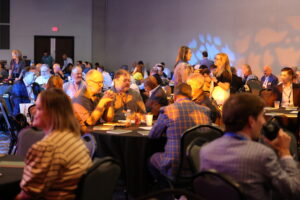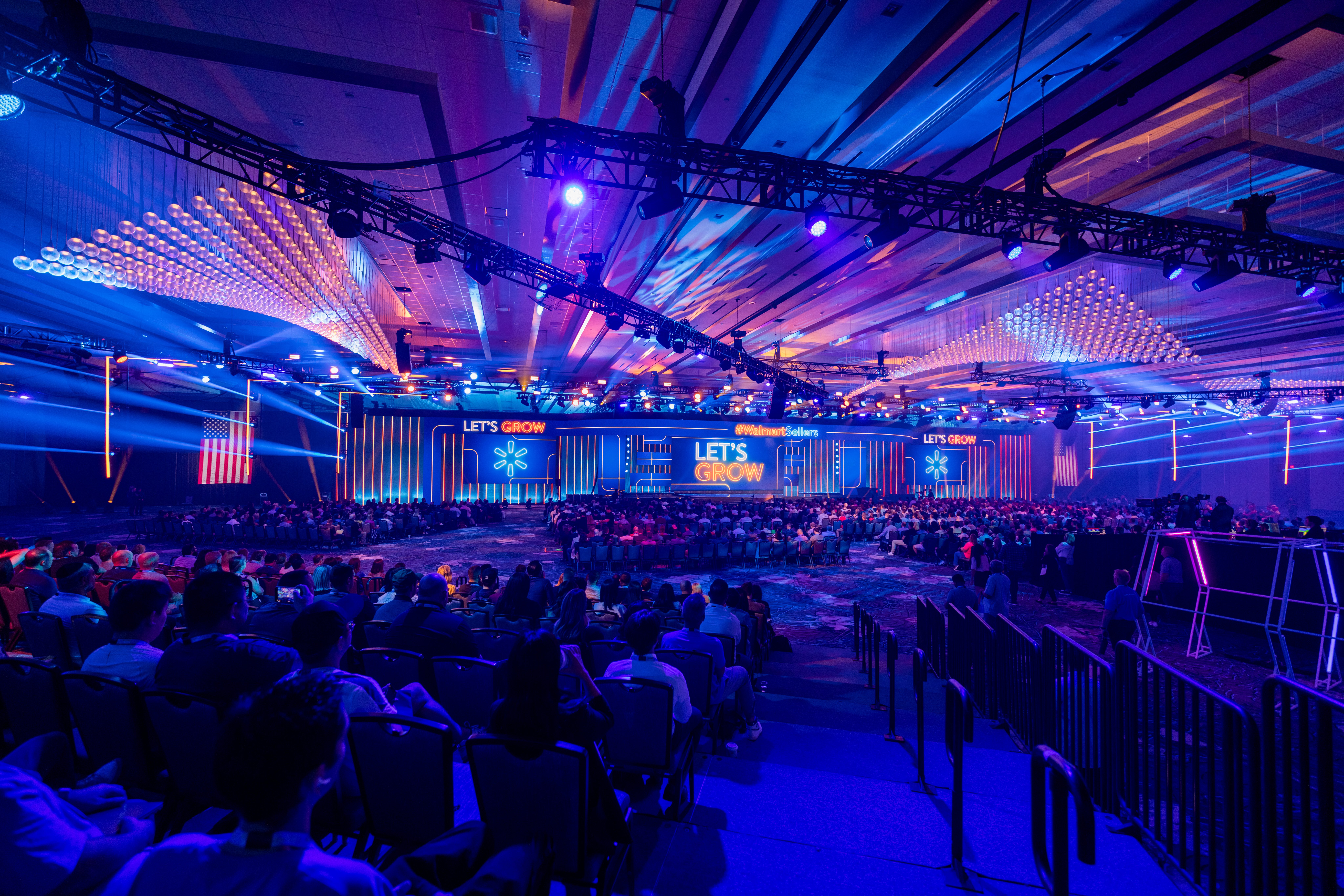In the world of corporate events, the line between event production and event planning has traditionally been clearly drawn. You had your event planner—handling logistics, schedules, vendors, and the big picture. Then you had your production company—handling gear, crews, lighting, audio, and all things tech. But increasingly, the lines are blurring.
And for good reason.
Some production companies are now offering full-service planning. Why? Because the two functions aren’t just adjacent—they’re often inseparable for a successful event. And when they’re not aligned, the result is inefficiency, miscommunication, and, often, added stress for clients.
What’s the Difference Between Planning and Production?
At a high level:
- Event planning involves timelines, vendor coordination, lodging, menus, decor, attendee communication, registration, and dozens of other moving pieces.
- Event production is responsible for the technical execution—audio, video, lighting, stage design, live streaming, and everything else that makes the event physically and visually come to life.
Most planners handle the event holistically, and most production companies handle just their slice. But when a client doesn’t have a planner—or when the planner is stretched thin—production teams are often asked to step in and help fill the gaps. And many have started to ask the question:
If we’re already this involved… shouldn’t we offer planning, too?
Why It Matters: The Planning-Production Overlap
What most people don’t realize is that many event-day technical challenges are rooted in early-stage planning decisions.
Here are just a few examples:
- Venue choice can massively affect production complexity and cost.
- Room layouts often determine gear choices, crew counts, and labor schedules.
- Catering timelines can clash with setup hours—especially in shared dock spaces.
- Event branding decisions affect screen content, scenic design, and lighting design.
These aren’t last-minute fixes. They’re baked into the DNA of the event from the very beginning. So when production gets involved too late—or not at all in early planning—it’s often a scramble to retrofit tech into a plan that wasn’t built with it in mind.
That’s one reason why some production companies are leaning forward into planning. It’s not about taking over a planner’s job. It’s about removing the gaps between two critical functions that are, in reality, part of one cohesive experience.

Why Some Clients Prefer a Unified Partner
Let’s be honest: not every organization has a full event team.
For many corporate clients, event planning is just one hat that a marketing director or executive assistant is wearing. And when that person is tasked with a major conference or annual meeting—while still doing their day job—outsourcing becomes a necessity.
Hiring a third-party event planner is a smart move. But hiring a planner and a separate production company adds more complexity to a process that’s already overwhelming. A unified team—with planners and producers working side-by-side—reduces handoffs, minimizes friction, and speeds up decisions.
It also allows for something rare: shared ownership of the event. When planners and producers are on the same team, they’re not just handing things off—they’re working together to anticipate problems before they happen, and to solve them seamlessly when they do.
Who This Model Works Best For
If you’re planning:
- A multi-day conference with keynotes, breakouts, and big expectations
- An internal sales or leadership summit with complex agendas and stakeholders
- An association or nonprofit event with tight budgets and high visibility
- A ticketed event with both in-person and remote/streaming components
…then this model can be a game-changer.
It’s not about replacing your team—it’s about augmenting it with experienced, integrated support. When your planner and producer are in sync from day one, the result is not just a smoother event—it’s usually a more affordable and efficient one, too.
What Services a Full-Scope Partner Might Offer
Some of the planning services now being offered in tandem with production include:
- Venue sourcing and feasibility studies
- Contract negotiations for spaces, room blocks, catering, and vendors
- Registration systems and attendee travel coordination
- Decor, branding, and communications strategy
- Vendor scheduling, dock coordination, and on-site management
- Accounting and reconciliation for vendor payments
- Day-of leading and coordination beyond just tech
When a single team can handle both the macro (logistics and vision) and micro (tech and details), events feel less like a juggling act and more like a well-oiled machine.

Why This Isn’t the Norm—Yet
Production companies don’t typically hire planners. Planning is people-intensive. It’s a different skill set. And planners don’t usually own production gear or run trucking logistics.
But as expectations rise, and budgets tighten, and timelines get shorter—clients need help that doesn’t fit into neat departmental boxes.
For the few companies willing to do the hard work of building a dual-discipline team, the payoff is real: more aligned events, happier clients, and fewer last-minute surprises.
Final Thoughts
If you’re in the early stages of planning a major event, ask yourself:
- Do I have enough internal bandwidth to handle all the logistics?
- Will my event benefit from having production involved earlier?
- Would a unified team help reduce risk, confusion, or cost?
The answers might lead you to reconsider how you hire help. And if you do find a production company offering planning—or a planner who partners closely with production—don’t dismiss it as a gimmick. It might be the most strategic move you make.
avad3 Event Production has 14 years of experience serving events across the country. The last 2 years we have expanded to add and include event planning services. We would love to speak with you about your event. Whether your greatest need is in Event Planning help, or Event Production help, we are HERE to serve and would love to do a discovery call to see if your project is a right fit for us.











